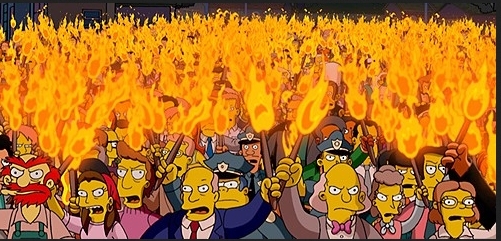The Internet Mob
A New York Times article criticized reactions to Justine Sacco's AIDS tweet as harshly as the tweet itself.
Sacco, the terminated communications director of an Internet company, fired off a jokey tweet ("Going to Africa. Hope I don't get AIDS. Just kidding. I'm white!") and suffered harsh consequences. Response tweets threatened murder and rape: 
- "Someone please borrow me a Gun, I need to shoot -->"
- "Someone (HIV+) must rape this b**** and we'll see if her skin colour can protect her from AIDS."
Such tweets are painful to read and, of course, do nothing to teach a lesson, if that's the intent, of appropriate social media behavior.
The New York Times article explains the power of an Internet mob,
"...today's riots are different in that it is the powerful, specifically those with the largest followings online, that could help quell these eruptions, yet instead douse them with more anger and hate."
and continues:
"In the eyes of the mob, there was justice.
"Yet the people who threatened to rape and murder Ms. Sacco, who attacked her family and friends, aren't held in contempt or fired from their jobs."
As the social media cycle goes, people have come out in defense of Sacco: not to justify her tweet, which would be difficult, but to say that she's generally a nice person. Also, a friend relays a recent conversation in which Sacco said "people seemed to like the tweets that were just a little bit risqué or outrageous."
Discussion Starters:
- What's your view of The New York Times article? Should people who criticize so harshly also suffer consequences?
- This story reminds me of when Adam Smith was fired from his company after "berating" a customer service employee at Chick-fil-A. What similarities and differences do you see in these situations?